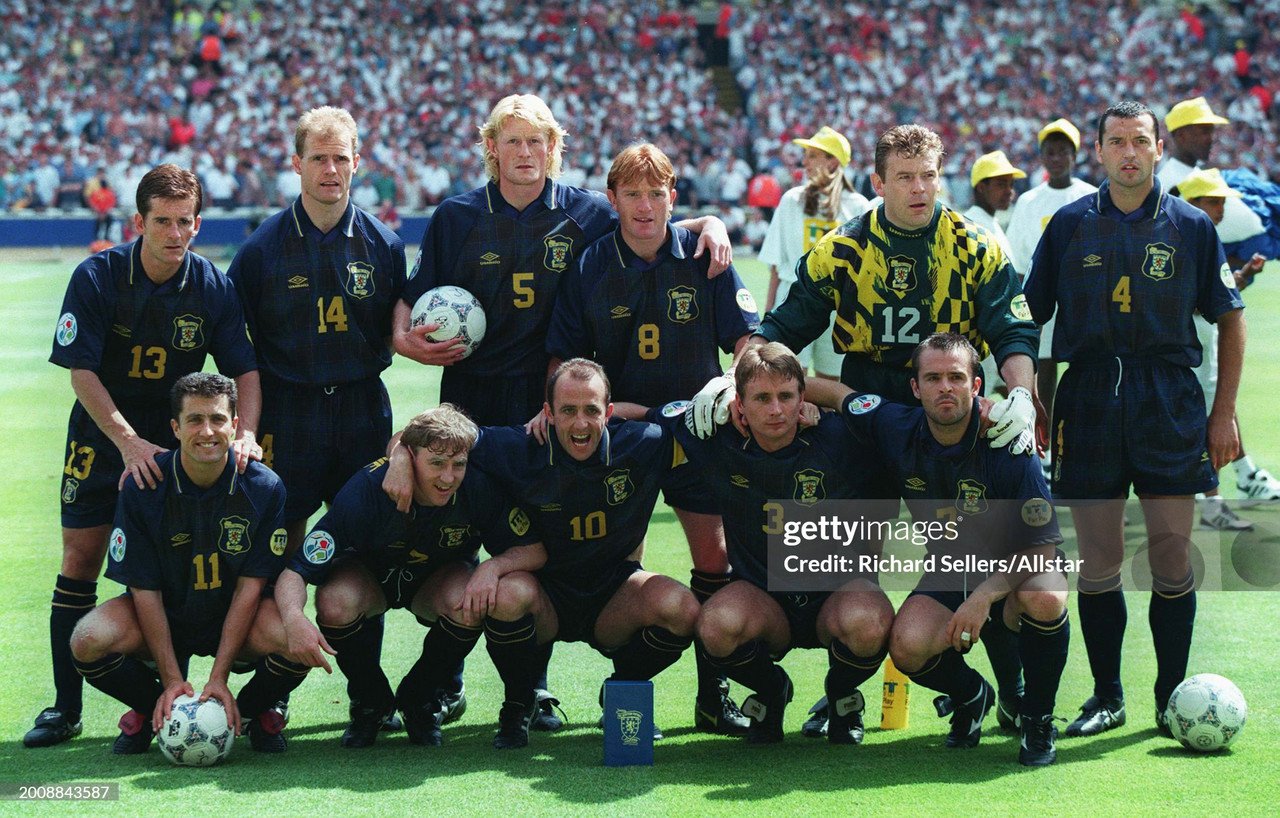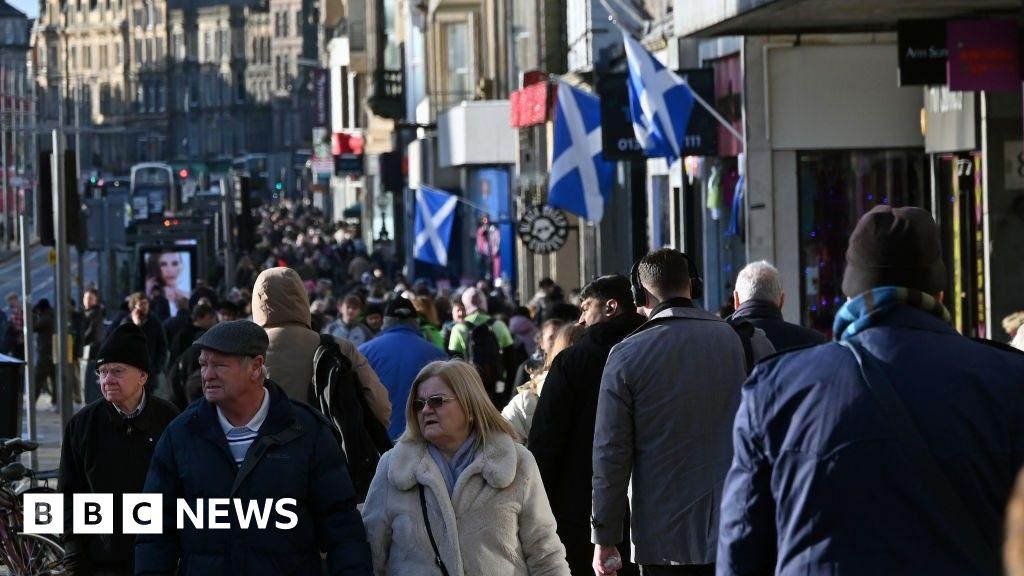Football
The Tartan Army travelled south of the border in 1996: Scotland’s Euro Memories

Scotland have the great pleasure of being a part of the opening fixture for the 2024 UEFA European Championship when they face hosts Germany.
They will take their place in Group A alongside the aforementioned Germany, as well as Hungary and Switzerland.
28 years ago, they also found themselves in Group A with the host nation, when they travelled down south to play in the 1996 UEFA European Championship, which was to be hosted by England.
With the competition fast approaching and the Scots feeling optimistic, it is the perfect time to reflect on debatably their most famous entrance into the tournament.
The 1996 edition of the European Championships was just the second time that Bonnie Old Scotland had qualified for the tournament proper, the first time had been four years previously.
Their group was to feature some of Europe’s elite in the Netherlands, Switzerland and old enemies England. Within those teams they would be facing, there were some truly world-class players.
Switzerland had the ever-dangerous Stephane Chapuisat up front. Although the Borussia Dortmund striker had spent much of the season injured, his record spoke for itself, and he was still going to be a handful for Scottish defenders.
The Netherlands’ squad for the 96’ Euros reads like a who’s who of Dutch football. Featuring such stars as Clarence Seedorf, Edgar Davids, and a young Patrick Kluivert. But the man whom all sides feared the most was Dennis Bergkamp.
At 27 years old the Arsenal man was well and truly in his prime. His elegance and skill were always going to be a potential issue for the Tartan Army.
There was only one English name on Scottish lips heading into the competition. That was Paul Gascoigne.
Gazza had moved to Rangers the summer previous and had impressed in the Scottish Premiership, scoring 14 goals as the Gers won their 46th league title.
Scotland were to be led into the tournament by Craig Brown. He had spent nine years in charge of Clyde before eventually getting involved with the national team setup.
Sir Alex Ferguson oversaw the Scots for the 1986 World Cup and decided that the former Clyde boss would be perfect for the role of assistant manager for the tournament.
After that, he went on to coach at several youth levels for Scotland. Brown impressed in his time during several roles and even got his side to the 1992 UEFA Under 21 European Championship semi-finals.
Andy Roxbough had been at the helm of the national team for seven years but, after failing to qualify for the 1994 World Cup, he resigned from his post.
Brown was at first given the role on an interim basis, before eventually nailing down the role permanently.
He had impressed during the qualification for the 1996 Euros, as his side only conceded three goals in 10 games.
No doubt about it, if you were facing Brown’s boys, you were in for a tough game.
Their first game took place at Villa Park, where they took on the Netherlands. Everyone considered it an easy three points for the Oranje, as they were thought to be one of the favourites for the Euros.
History paints this game as plucky Scotland escaping Birmingham with a point, but that is far from the truth.
Scotland gave as good as they got and went blow for blow with footballing royalty. Eventually, the game finished 0-0, but the Tartan Army displayed excellent control of their box and never looked in too much trouble.
The Scots next had to head further down the country to play their long-time rivals England at Wembley Stadium. They once again gave a very good account of themselves but fell short against an excellent England side.
The Three Lions went ahead through Alan Shearer, but Scotland were granted a penalty which captain Gary McAllister stepped up to take. His effort was saved by David Seaman and not long after Paul Gascoigne went on to score that goal.
With only one point from two games, Scotland knew they needed a miracle to get through to the last eight. They were playing Switzerland. While in London, the Dutch took on England.
Scotland needed to win and required Holland to take a battering. Unbelievably, both these events happened. Ally McCoist scored an absolute peach to give his side the victory over the Swiss.
Simultaneously, England were thumping Holland and were 4-0 up after 65 minutes. If the results stayed exactly as they were, Scotland would be through on goal difference.
But a goal late from time from Patrick Kluivert made it 4-1 against England. This meant the two sides had the same record, with one win, one draw and one loss. They also had an identical goal difference.
The Netherlands went through due to the fact they had scored more goals in the tournament, but let us get it right, Scotland showed the world what they were all about and deserved more than what they got.
Scotland had become an incredibly solid defensive outfit, and Colin Hendry was a vital part of that back line.
The Premier League winner was key at the heart of his side’s defence and helped them contain some excellent players. The former Manchester City man was first to everything in his box and was never afraid to throw his head at anything.
At the time of the competition, Hendry was playing for Blackburn Rovers. A couple of years later he moved back to Scotland, to play for Rangers.
Following two years there, he bounced around a few English clubs and quietly finished his career with Blackpool in 2003.
In his last game for Scotland, he scored two goals against San Marino which took his tally for his country to three goals.
-
How did their 2024 Qualifying go?
There are certainly similarities between the ’96 Scots and the modern boys. They are defensively sound, just like the group before them and they play with their hearts on their sleeve.
Their qualification for the 2024 tournament, on paper, was far from straightforward as they were drawn with Spain and Norway. Many considered the two as the favourites to qualify.
Scotland managed to beat both – including the famous victory over Spain at Hampden Park – on route to finishing second in the group.
They showed what not only the team is about, but also the country – displaying a grit and determination synonymous with the nation.
There is no doubt they will once again attempt to evoke the spirit of the team from the mid-90’s when they arrive at the Allianz Arena to take Germany on June 14th.










